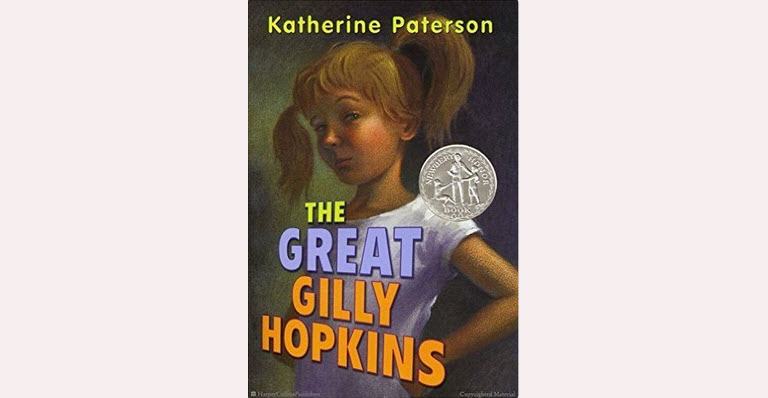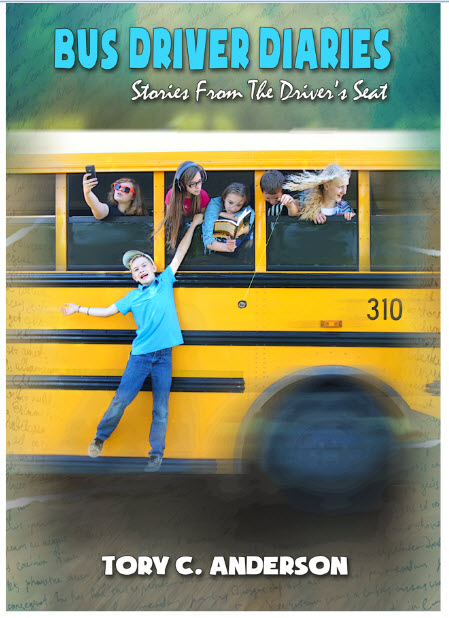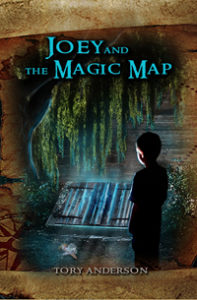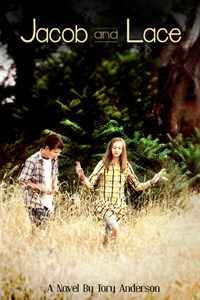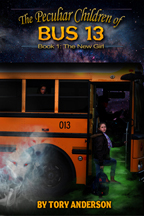There are books, written decades ago, that are so good you wonder how it is possible you haven’t read them sooner. For me, The Great Gilly Hopkins is one of those books. That fact that I haven’t discovered this book is even more interesting considering I read Katherine Paterson’s award winning Jacob Have I Loved and Bridge to Terabithia when I was a kid. Both of those books deeply moved me. I think The Great Gilly Hopkins is the best of them. Coming across Gilly after all these years is like finding a $100 bill in the pocket of a suit coat you haven’t worn for ages.
What strikes me the most about Gilly is that Paterson does so much with so little. She takes the most ordinary, unheroic, unremarkable characters and changes your life with them. You have Trotter, an extra-large, nearly illiterate woman who smells like sweat and baby powder. You have a blind, shriveled, black man who knows how to compliment good cooking. There is William Earnest, an irritatingly timid little boy who is slow to boot. There are others, but all of them are just as ordinary as those I’ve already mentioned. I shouldn’t forget to mention Gilly, herself. After all it is Gilly who drives all the other characters and brings out their colors. Paterson shows a mastery of character development through Gilly. She is smart and she is angry. It’s in the shadow of her intelligence and anger that we see her vulnerability.
That cans it, thought Gilly. At least nobody had accused Mr. or Mr. Nevins, her most recent foster parents, of being “nice.” Mrs. Richmond, the one with the bad nerves, had been “nice.” The Newman family, who couldn’t keep a five-year-old who wet her bed, had been “nice.” Well, I’m eleven now, folks, and, in case you haven’t heard, I don’t wet my bed anymore. Bt I am not nice. I am brilliant. I am famous across this entire county. Nobody wants to tangle with the great Galadriel Hopkins. I am too clever and too hard to manage. Gruesome Gilly, they call me. She leaned back comfortably. Here I come, Maime baby, ready or not.
Paterson takes this ordinary foster child whose only claim to county-wide fame is being smart and hard to manage, and pits her against a slow, loving, fat woman; a sweet, blind, shriveled old man, a defenseless special needs boy, and a shrewd teacher who, Gilly notes, happens to be black. At the beginning of the book the question is how will these characters survive Gilly? Gilly is smart and she is mean. My imagination, as I’m sure Paterson intended, brought Gilly into my own life and I was afraid. Gilly is a person who will bring you down.
A masterful touch was a side character named Agnes Stokes. Paterson does not make use of plot twists to power the reader’s interest and neither does she use stock characters. You think you know what Agnes is going to be in the story, but you will be wrong. In the end you will recognize Agnes, but find no comfort in her. Paterson’s brilliant use of Gilly’s voice eventually has her make this observation about Agnes:
Poor Agnes, what would become of her? Would she stomp herself angrily through the floor, or would someone’s kiss turn her magically into a princess? Alas, Agnes, the world is woefully short on frog smoochers.
Perhaps what impresses me most in The Great Gilly Hopkins is Paterson’s compelling use of narrative voice. The book has a third person narrator, but that narrator is never far from, and often melds into, Gilly’s voice. You will find the usual third person in things like, “After supper Gilly did her homework . . .” and right next to it you will have:
If you mean “never” trotter, say so. Is that it? Will I never see the three of you again? Are you going to stand by and let them rip me out and fold me up and fly me away? Leave me a string, Trotter, a thread, at least. Dammit.
Gilly isn’t speaking. I’m not even sure she is thinking these words, but they are an effective expression of her feelings that let us feel the state of her soul.
The great Gilly loses to these unlikely characters. The beauty of the writing is that you aren’t quite sure where it was that she lost. You may think this is a spoiler, but it isn’t. You can know the ending of this book (which I haven’t given you) and lose none of the joy of reading it. Paterson brought my reading experience to a kind of ecstasy when the eleven-year-old Gilly realizes that “She had thrown away her whole life for a stinking lie.” When the ending came, exactly when it should have, it was one of the happiest saddest endings I have ever read.
__________________________________________________________________________________
These books by Tory Anderson are now available on Amazon in Kindle and paperback format:

